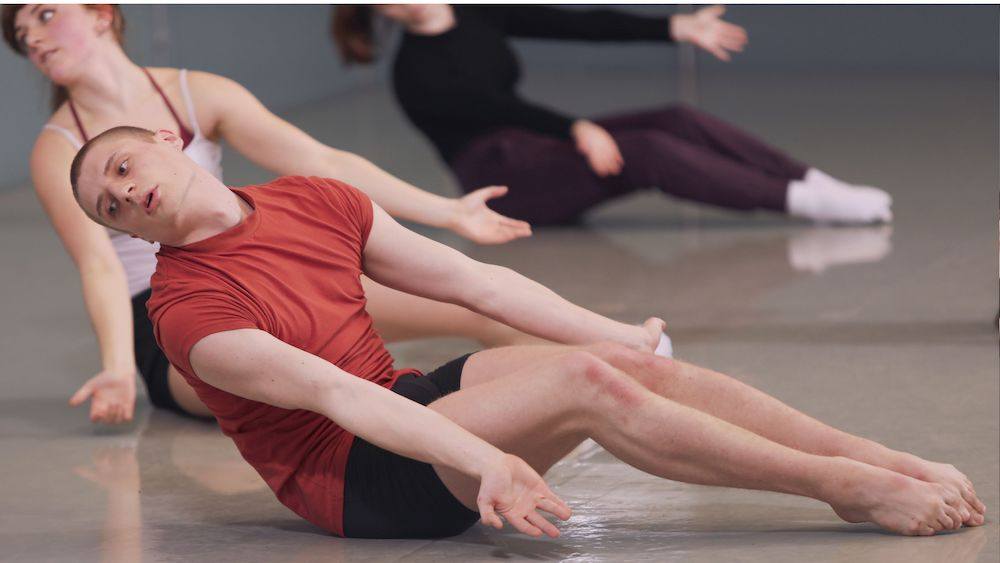Elegy poetry, a poignant literary form that reflects on themes of loss and mourning, is finding new life in contemporary workshops, such as those held in Harvard’s Woodberry Poetry Room. Designed to foster connections through shared grief and loss, these gatherings welcome both seasoned poets and novices alike. The recent workshop, part of the ongoing Elegy Project, exemplifies this community spirit, inviting participants to explore their emotions and craft elegies that resonate with personal and collective experiences. Led by dedicated facilitators like Karen Elizabeth Bishop and David Sherman, the initiative aims to normalize expressions of sorrow, demonstrating that grief doesn’t have to be a solitary journey. As poet Peter Gizzi, an advocate for the elegiac tradition, highlights its vital role in human emotion, attendees are encouraged to partake in this healing art, thereby enriching their understanding and appreciation of poetry.
Elegiac verse, often associated with the mourning of loved ones, serves as an essential conduit for expressing deep-seated feelings and experiences related to bereavement. This genre of poetry transcends mere lamentation; it fosters community engagement, as exemplified in collective settings like poetry workshops. The Elegy Project encourages participants to confront and articulate their grief, thus enabling a shared healing process. Led by figures such as Karen Elizabeth Bishop and David Sherman in venues like the Woodberry Poetry Room, these workshops integrate diverse voices into the poetic discourse, making the craft more accessible. The involvement of noted poets, like Peter Gizzi, situates elegy within a broader cultural and artistic framework, underscoring its relevance in today’s world.
Exploring the Tradition of Elegy Poetry
Elegy poetry is a revered tradition that serves as a means of expressing sorrow and honoring those we have lost. In the recent workshops held at Harvard’s Woodberry Poetry Room, participants explored this powerful poetic form amidst a backdrop of shared grief triggered by the pandemic. Through collaborative writing and reflection, poets and non-poets alike engaged with their emotions as they crafted elegies, demonstrating how personal experiences can resonate universally. By tapping into the raw feelings of loss and remembrance, the Elegy Project fosters a communal healing process, showcasing the significant role of poetry in navigating our shared human condition.
The workshop’s leaders, Karen Elizabeth Bishop and David Sherman, not only guide participants in understanding the tenets of elegy but also encourage creative exploration. They emphasize that the act of writing elegies can help articulate feelings of loneliness while making the act of grieving less isolating. The Elegy Project has become a vital resource, promoting public poetry initiatives that place elegy in everyday contexts, thereby allowing individuals from all walks of life to connect through their shared experiences of loss.
The Impact of Community Poetry Workshops
Community poetry workshops play a pivotal role in cultivating a supportive environment where individuals can explore their inner thoughts and emotions. Events like the recent Elegy Project workshop not only empower participants to express themselves through poetry but also bolster community ties. This creative collaboration brings together a diverse group of people, including students, retired professionals, and seasoned poets, all aiming to share their unique perspectives on grief and loss. By providing a collaborative platform, these workshops enhance the artistic voices of participants and create a tapestry of shared experiences woven through words.
Moreover, workshops conducted in spaces like the Woodberry Poetry Room allow for intimate interactions between poets and the art form itself. The emphasis on writing in the community underscores how poetry thrives when it is shared and celebrated. During the sessions, participants utilize prompts inspired by the Poetry Room’s extensive collection, unlocking their creativity and fostering discussions that enrich their understanding of poetic expression. This communal aspect is vital, as it reminds participants that they are not alone in their feelings, transforming isolated grief into collective healing.
Loneliness and Grief: The Poetic Response
The themes of loneliness and grief run deep in the elegy tradition, making it an accessible entry point for those exploring poetry. The COVID-19 pandemic has heightened feelings of isolation, prompting an urgent need for creative outlets that connect individuals to their emotions and each other. Through the Elegy Project, participants learn that poetry serves not only as an expression of sorrow but also as a celebration of life and memory. This understanding allows for a more profound exploration of how our society can navigate the complexities of grief.
By uniting individuals over the contemplations of elegy, the workshop offers a space for reflection and catharsis. Participants are encouraged to confront their feelings of loss, formulating their thoughts into verses that not only validate personal experiences but also resonate with others who may have faced similar circumstances. This collective acknowledgment of grief creates a sense of belonging and community, reinforcing the notion that, through poetry, we can find solace and support in shared experiences.
The Role of the Woodberry Poetry Room
The Woodberry Poetry Room stands as a sanctuary for poetry enthusiasts and a hub for creative exploration. Hosting workshops such as the Elegy Project, this esteemed venue fosters an environment where individuals can connect through the transformative power of poetry. By creating accessible workshops, the Poetry Room breaks down barriers that may prevent people from engaging with poetic art. Such inclusivity encourages participation from a broad demographic, ensuring that everyone has an opportunity to express themselves creatively.
Moreover, the Poetry Room’s commitment to nurturing community engagement through initiatives like the Community Megaphone grant highlights its dedication to supporting local poets and organizations. The funding allows for workshops that are not only educational but also enhance the social fabric of the community. By intertwining poetry with social connection, the Woodberry Poetry Room plays a crucial role in revitalizing the love for poetry, reminding individuals that art is not just meant to be revered but actively engaged with.
Emphasizing the Importance of Public Poetry Initiatives
Public poetry initiatives, such as the Elegy Project, underscore the importance of making poetry accessible to all. These programs serve as conduits for expression and connection, enabling individuals to rediscover their voice amidst difficult emotions like grief. By distributing poetry cards in public spaces, the initiative invites people to engage with poetry spontaneously, fostering a culture where creative expression is embraced in everyday life. This unorthodox approach to sharing poetry not only democratizes art but also promotes individual and communal healing.
Engaging the public through poetry is crucial for breaking down traditional barriers and stigmas associated with artistic expression. The Elegy Project exemplifies how collective grief can be articulated and shared openly. It encourages individuals to confront their feelings directly while also reaching out to others, thus mitigating loneliness. As more people participate in these initiatives, the more communal understanding flourishes, establishing a supportive network built around art and emotion.
The Power of Writing Prompts in Poetry Exploration
In the context of poetry workshops, writing prompts serve as invaluable tools that help participants overcome creative blocks and stimulate imaginative thinking. During the Elegy Project sessions, prompts inspired by past literary works encourage poets, both budding and seasoned, to delve into their emotions and experiences. This scaffolding allows participants to engage with poetry more freely, alleviating the pressure to produce perfect lines and enabling authentic expression. The prompts serve as catalysts, igniting inspiration and leading to meaningful verses that resonate with both the writer and their audience.
By incorporating prompts into the creative process, poets can explore various themes, styles, and emotions more effectively. Workshops like those at the Woodberry Poetry Room highlight how guided exploration can help participants navigate their individual grief and loss. These structured yet flexible approaches encourage participants to traverse the complexities of their experiences, illustrating how poetry can be a therapeutic outlet. The power of writing prompts ultimately allows diverse voices to emerge, contributing to a richer poetic landscape.
Highlighting the Influence of Established Poets
Having established poets involved in community workshops can greatly enhance the learning experience for all participants. Notably, poet Peter Gizzi, recognized for his distinguished contributions to elegy poetry, played a role in the Elegy Project through readings and interactions. His insights and guidance offer budding poets valuable perspectives on poetic tradition and technique, motivating them to elevate their craft. The presence of such influential poets fosters an environment of learning and exploration, where emerging voices can flourish alongside seasoned professionals.
The interaction between established poets and workshop participants also cultivates a sense of inspiration and aspiration. Poets like Gizzi provide not only expertise but also embody the potential for growth and development within the poetic landscape. This relationship encourages participants to take risks in their writing, pushing boundaries and experimenting with their own voices. In doing so, workshops become vibrant spaces of creativity, language, and connection, reinforcing the notion that poetry is a living, evolving art form.
Connecting Personal Experience to Universal Themes
One of the most potent elements of poetry, particularly in the elegy tradition, is its ability to connect deeply personal experiences to universal themes. Through poetry workshops like the Elegy Project, individuals will explore the intricate weave of their emotions, transforming grief into relatable verses that resonate with a wider audience. This act of sharing one’s experience through poetry enables participants to recognize common threads of loss, healing, and remembrance that exist across various backgrounds and cultures.
As participants craft elegies, they engage in a dialogue that invites reflection not only on their personal experiences but also on the collective human experience. This communion of emotions nurtures understanding, empathy, and connection, ultimately reinforcing the idea that while each person’s story of grief is unique, the emotions tied to that grief can be widely felt. In this way, poetry becomes a bridge that links personal narratives to shared emotional truths, enriching both the writer’s experience and those who encounter their work.
Future Directions for Community Poetry Initiatives
As community poetry initiatives like the Elegy Project continue to evolve, there are vast opportunities for expansion and enhancement. The workshops have demonstrated a profound impact on participant engagement and emotional exploration, suggesting that integrating more diverse literary forms and styles could further enrich the experience. By incorporating elements of spoken word, digital media, or collaborative anthologies, future initiatives can embrace a broader spectrum of creative expression, ensuring that voices from various backgrounds are amplified continuously.
Furthermore, fostering partnerships with local organizations and schools can extend the reach of poetry workshops, inviting more individuals from different demographics to participate and share their experiences through the written word. Encouraging intergenerational participation could also lead to unique exchanges of wisdom and creativity, allowing for a more vibrant discourse around poetry and its role in healing. As community poetry initiatives grow, their capacity to shape cultural conversations around grief and loss will undoubtedly enrich the collective experience of art.
Frequently Asked Questions
What is elegy poetry, and how has it evolved in modern poetry workshops?
Elegy poetry is a poetic form traditionally written to honor and mourn the dead, reflecting on themes of grief and loss. In modern poetry workshops, such as those conducted in the Woodberry Poetry Room, elegy has evolved to encompass collective mourning experiences, especially during events like the pandemic. Workshops often provide a supportive environment for participants to express their personal elegies, fostering a sense of community and shared emotion.
How does the Elegy Project aim to address loneliness and grief through poetry?
The Elegy Project, part of a community poetry initiative, aims to alleviate feelings of loneliness and grief by encouraging public engagement with elegy poetry. By distributing poetry cards in public spaces and hosting workshops, the project fosters a sense of connection among participants and the wider community, showing that grief is a universal experience that can be processed collectively through artistic expression.
Can you explain the significance of Peter Gizzi’s contributions to elegy poetry at community poetry events?
Peter Gizzi, recognized for his T.S. Eliot Prize-winning collection ‘Fierce Elegy,’ contributes significantly to the discourse on elegy poetry, particularly in community events. His work not only exemplifies the personal depths of elegy but also emphasizes communal reflection on loss. Through readings and workshops, Gizzi helps to inspire others to explore their own experiences of grief, enriching community poetry initiatives with profound insights.
What role do workshops at the Woodberry Poetry Room play in enhancing the writing of elegy poetry?
Workshops at the Woodberry Poetry Room provide participants with resources and prompts to explore their thoughts and emotions effectively, enhancing their elegy poetry writing. These gatherings encourage dynamic interactions with literature and fellow writers, creating a space where individuals can delve into personal loss and collective mourning, ultimately making the writing process more enriching and accessible.
How does the community’s response to elegy poetry guard against the isolation of grief?
The community’s response to elegy poetry, particularly through initiatives like the Elegy Project, helps guard against the isolation of grief by facilitating shared experiences. Participants often come together to compose elegies, share stories, and engage with each other’s work, thus fostering connections that combat loneliness and affirm the notion that experiencing grief is a shared human condition.
What inspired the creation of the Elegy Project amid the pandemic, and what impact has it had on community poetry?
The Elegy Project was born from the recognition of heightened loneliness and grief during the pandemic. Its creators sought to provide an accessible platform for individuals to express their mourning through poetry without the barriers often posed by traditional publishing. This initiative has significantly impacted community poetry by inviting diverse voices to participate in the elegiac tradition, making poetry and its therapeutic benefits more inclusive.
How can someone engage with elegy poetry if they are new to poetry workshops?
New participants interested in elegy poetry can engage through workshops by starting with prompts provided by experienced facilitators, such as those at the Woodberry Poetry Room. These supportive settings encourage newcomers to express their thoughts and feelings associated with loss, providing a structured yet flexible environment to nurture their developing poetic voice alongside others in the community.
What are some common themes explored in elegy poetry as discussed in recent workshops?
Common themes explored in elegy poetry during recent workshops include personal loss, collective mourning, the experience of isolation, and the need for remembrance. Participants are encouraged to delve into their experiences and feelings surrounding grief, often reflecting on broader societal issues, such as the impacts of the pandemic on emotional well-being and community bonding.
| Key Aspects | Description |
|---|---|
| Workshop Leaders | Karen Elizabeth Bishop and David Sherman |
| Inspiration | Focuses on the loneliness and grief resulting from the pandemic, encouraging participants to write elegies. |
| Participants | A diverse group including poets, students, and community members looking to express their grief through poetry. |
| Goals of the Project | Make grief less isolating and encourage communal writing and sharing of elegies. |
| Community Engagement | Running poetry workshops and creating open calls to expand poetry creation beyond just published authors. |
| Quotes from Experts | “Elegy is perhaps the most primal and human of poetic impulses…to be alive is to experience loss.” – Mary Walker Graham |
Summary
Elegy poetry serves as a profound genre that captures the essence of loss and mourning within the human experience. Through recent workshops, poets and community members have found solace and connection in crafting elegies, particularly in the context of the loneliness experienced during the pandemic. This communal effort highlights how elegy poetry not only pays tribute to those we have lost but also helps us navigate our feelings of grief, fostering a sense of shared humanity and understanding.


